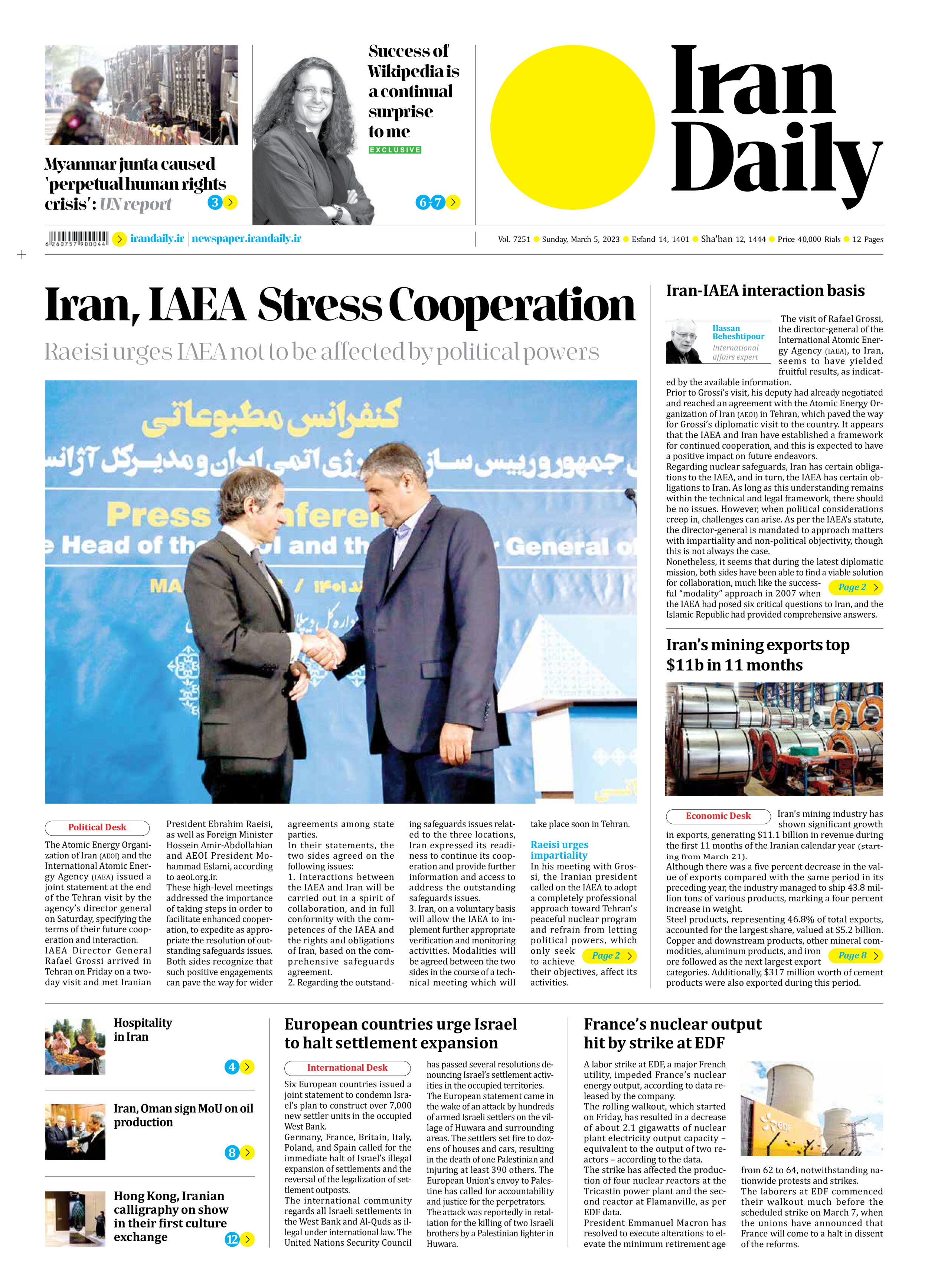
Iran-IAEA interaction basis
Hassan Beheshtipour
International affairs expert
The visit of Rafael Grossi, the director-general of the International Atomic Energy Agency (IAEA), to Iran, seems to have yielded fruitful results, as indicated by the available information.
Prior to Grossi’s visit, his deputy had already negotiated and reached an agreement with the Atomic Energy Organization of Iran (AEOI) in Tehran, which paved the way for Grossi’s diplomatic visit to the country. It appears that the IAEA and Iran have established a framework for continued cooperation, and this is expected to have a positive impact on future endeavors.
Regarding nuclear safeguards, Iran has certain obligations to the IAEA, and in turn, the IAEA has certain obligations to Iran. As long as this understanding remains within the technical and legal framework, there should be no issues. However, when political considerations creep in, challenges can arise. As per the IAEA’s statute, the director-general is mandated to approach matters with impartiality and non-political objectivity, though this is not always the case.
Nonetheless, it seems that during the latest diplomatic mission, both sides have been able to find a viable solution for collaboration, much like the successful “modality” approach in 2007 when the IAEA had posed six critical questions to Iran, and the Islamic Republic had provided comprehensive answers.
During the recent trip, the contentious 84% enrichment claim has been settled, and the issue of reconfiguring the Fordo centrifuges has been addressed. The IAEA still has questions about three undeclared sites, which require further discussion, but progress has been made.
The establishment of an agreement between Iran and the IAEA could have a significant impact on the resumption of negotiations aimed at reviving the Joint Comprehensive Plan of Action (JCPOA) and reaching a final deal. In a few days, the IAEA’s Board of Governors will convene, and Grossi is expected to present a report on his meetings and agreements with Iran. If the report is positive, it is unlikely that the Board of Governors will issue any resolution against Iran. However, if they do, Grossi’s trip may be deemed a failure, which could further damage the trust-building process.
Nevertheless, based on the statements of Grossi and AEOI chief Mohammad Eslami, the meetings in Tehran have been fruitful. Therefore, there is every reason to be optimistic that a positive atmosphere will prevail in the nuclear talks to revive the JCPOA after Grossi’s report.







